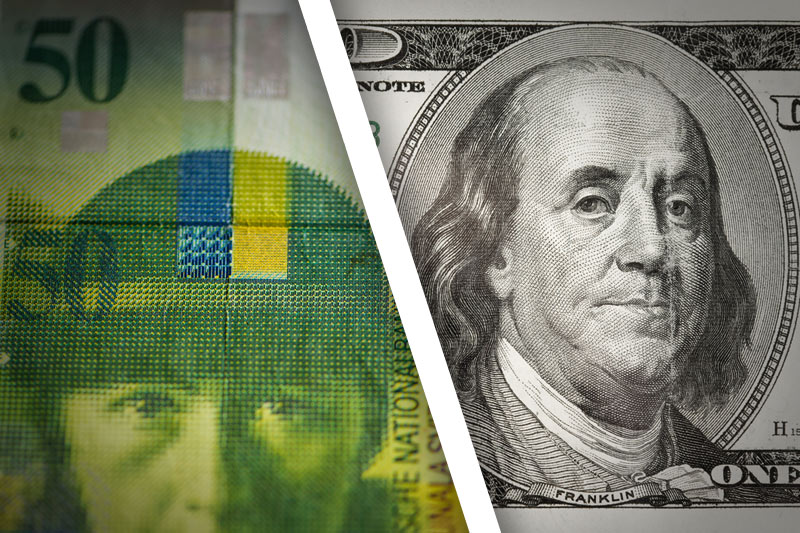USD/CHF is reaching its upper limit - UBS
The USD/CHF pair has been on a rollercoaster ride of late, but after a period of US dollar strength UBS thinks the pair may be reaching its upper limit.
At 05:20 ET (09:20 GMT), USD/CHF traded at 0.8650, up 1.7% over the course of the last month.
“In recent quarters, the USD/CHF exchange rate has been moved mainly by the USD side,” said analysts at UBS, in a note dated Oct. 18. “The state of the US economy and expectations for the Federal Reserve’s monetary policy path have been the key drivers.”
The two weak US labor markets reports at the beginning of August and September led to a significant repricing of the US interest rate outlook, culminating in a 50-basis-point rate cut by the Fed in September. As a result, the USD/CHF dropped from 0.90 in July to 0.84 in August and September.
The Swiss National Bank’s (SNB) guidance in September that further cut rates are ahead did little to move the pair, the Swiss bank said.
“However, after a much better-than-expected US labor market report in October, the pair jumped to almost 0.87, with the USD regaining about half of its lost territory.”
The spotlight will be on the upcoming labor market reports to confirm whether the strong October numbers were an outlier or a reflection of a very resilient labor market.
However, the print will likely be strongly influenced by the recent hurricanes in Florida, which will make it even harder for the Fed to interpret the figures, UBS said. Furthermore, the upcoming US election may lead to additional volatility.
Policy uncertainty may arise if Donald Trump wins, related to his tariff proposal, or if the election is too close to call and the result takes weeks to arrive.
“Overall, we believe that the upside potential from here is very limited for the USD and that there are a number of drivers in the coming weeks that should lead the USDCHF exchange rate lower again, testing previous lows around 0.84,” UBS added.
“We advise clients to reduce or hedge their USD exposure at current levels or in case the US elections lead to a spike higher.”
Source: Investing.com
